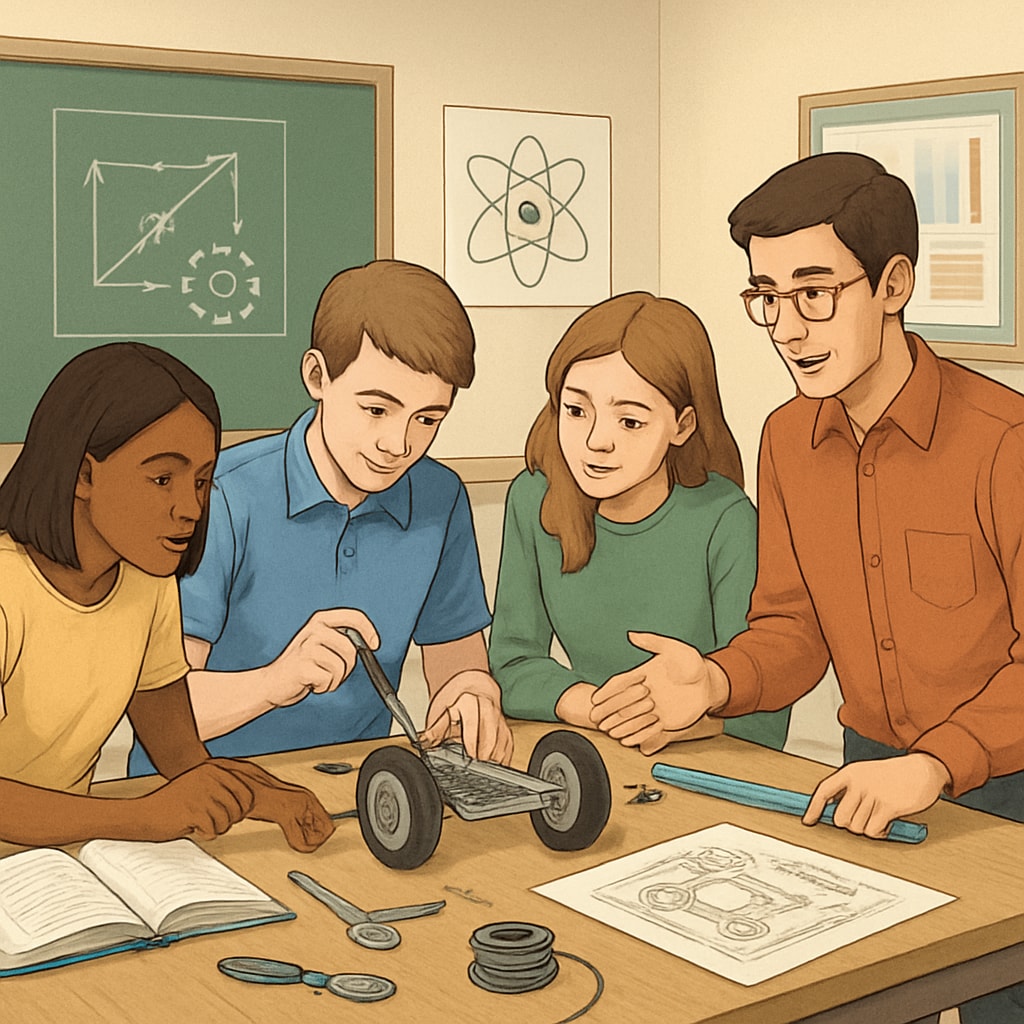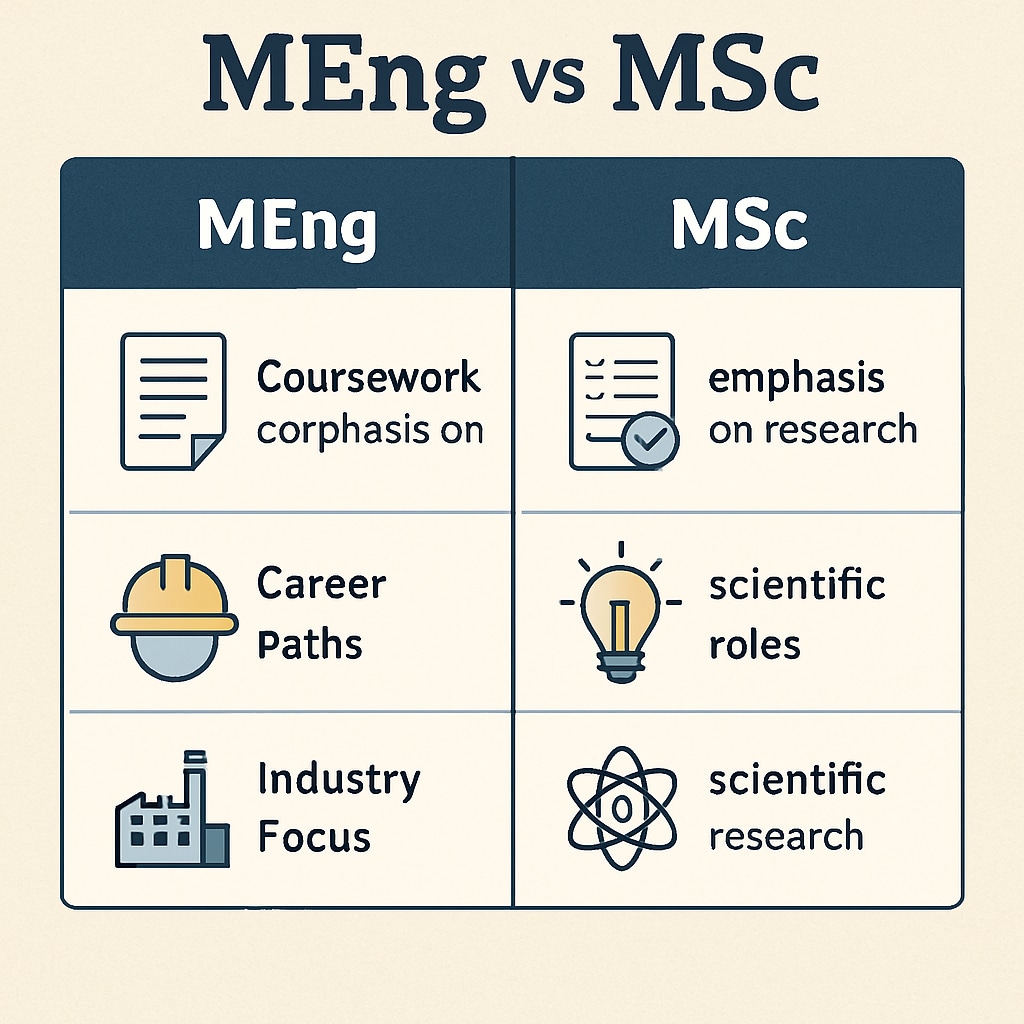The relationship between design engineering, master’s degree choices, and career development is becoming increasingly clear in today’s competitive job market. Early exposure to engineering principles and career planning during the K12 education phase can play a vital role in shaping a student’s future academic and professional path. By fostering engineering thinking and decision-making skills early on, students are better equipped to make informed choices when deciding between advanced degree options like MEng (Master of Engineering) or MSc (Master of Science).
The Role of K12 Education in Preparing Future Engineers
K12 education is more than a stepping stone to higher education; it’s the foundation for developing critical thinking and problem-solving skills essential for engineering careers. Schools can introduce students to basic engineering concepts through STEM (Science, Technology, Engineering, and Mathematics) curricula, hands-on projects, and extracurricular activities like robotics clubs or design competitions. These experiences cultivate a mindset geared toward innovation and analytical reasoning.
For example, programs like STEM education on Wikipedia have been proven to enhance students’ creativity and technical abilities, preparing them for complex engineering challenges. By engaging students early, educators can help them envision a future in design engineering and understand the diverse career opportunities available in this field.

Choosing Between MEng and MSc: Key Factors to Consider
When students reach the point of pursuing advanced degrees, they often face the decision between an MEng and an MSc in design engineering. While both degrees offer valuable knowledge and skills, they cater to different career paths. MEng programs are typically more practice-oriented, focusing on engineering design and application in real-world scenarios. In contrast, MSc programs emphasize research and theoretical understanding, making them ideal for students interested in academia or specialized fields.
Factors to consider when choosing between these degrees include:
- Career Goals: Students aiming for industry roles may prefer MEng, while those interested in research or teaching might choose MSc.
- Program Structure: MEng programs often include internships and project-based learning, whereas MSc programs may require a thesis or extensive research.
- Industry Demand: Some industries prioritize practical experience over theoretical knowledge, influencing degree preferences.
As a result, K12 educators and counselors can play a crucial role in helping students evaluate these options by introducing career planning tools and mentorship opportunities.

Career Competitiveness: How Early Preparation Makes a Difference
In the competitive field of design engineering, early exposure to problem-solving and project management skills can give students a significant edge. Employers often seek candidates who not only possess technical expertise but also demonstrate creativity, teamwork, and adaptability—qualities that can be nurtured during K12 education.
For instance, initiatives like project-based learning on Britannica allow students to tackle real-world challenges, enhancing their ability to think critically and work collaboratively. Additionally, incorporating soft skills like communication and leadership into engineering education ensures that students are well-rounded professionals ready to excel in their careers.
By the time students reach higher education, those with a strong foundation in engineering thinking are better positioned to succeed. Whether they pursue an MEng or MSc, their early preparation equips them to adapt to the demands of their chosen field and stand out in the job market.
Conclusion: Building the Path from K12 to Career Success
Design engineering, master’s degree choices, and career development are interconnected, with K12 education serving as the first step in this journey. By introducing engineering concepts and fostering critical thinking early, educators can empower students to make informed decisions about their future academic paths. Whether pursuing an MEng or MSc, students with a strong foundation in engineering thinking are better prepared for the challenges of their careers and more competitive in the global job market.
Ultimately, investing in early education programs that emphasize STEM and career planning is essential for shaping the next generation of innovative engineers.
Readability guidance: Use concise paragraphs and clear lists to summarize key points. Balance technical and general content to ensure accessibility for a broad audience. Distribute transition words evenly and limit passive voice usage for a more engaging reading experience.


